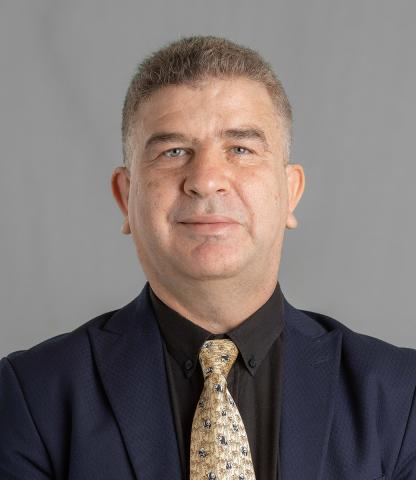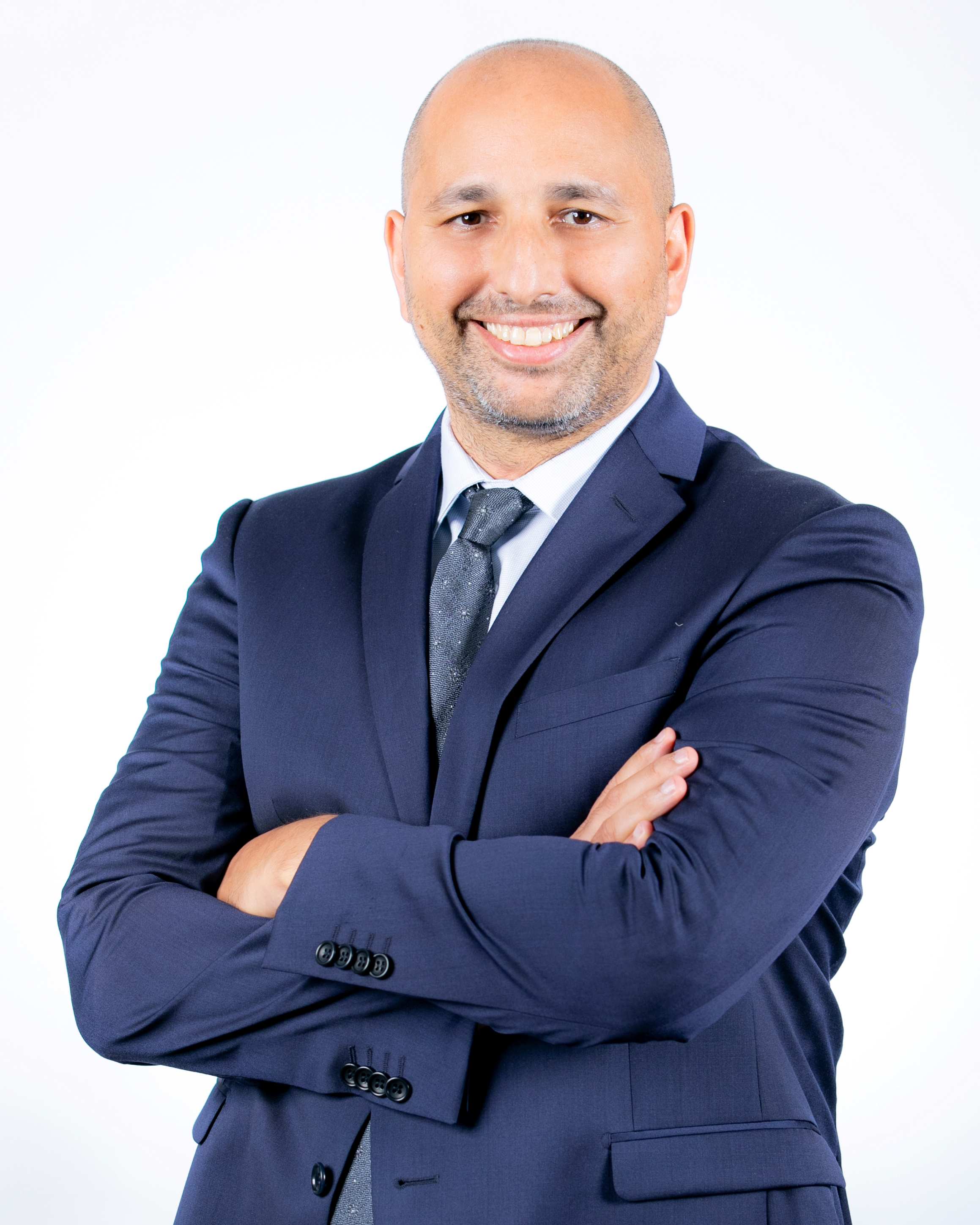
Professor and Associate Dean
College of Science and Engineering, CSE
Hamad Bin Khalifa University, HBKU
Qatar Foundation, Qatar
Edge intelligence holds immense importance in enabling real-time decision-making and reducing latency by processing data closer to sensing. This approach enhances efficiency, privacy, and security by minimizing the need for constant data transmission to centralized servers. However, the tradeoffs lie in the limited computational power and memory at the edge, potentially restricting the complexity of algorithms and the scale of data processed compared to the vast resources available in the cloud. This talk presents the fusion of AI with sensors showcasing the integration of AI at an embryonic stage with sensors, leading to a profound impact on sensor functionality and application. The talk will illustrate this transformative integration of AI at the sensor level using three compelling case studies and illustrating the advantages of edge intelligence:
The first case study, within the realm of olfaction, the convergence of bio-inspired classification algorithms with gas/smell sensors presents a breakthrough in realizing an electronic nose. The seamless embedding of AI augments sensor capabilities, enabling training, recognition and classification of diverse odors, mirroring the sophistication of human olfactory system.
The second case study delves into the domain of vision sensors, illustrating how minor modification of pixel structure can accommodate convolutional layers for deep learning. This adaptation amplifies the capacity of vision sensors, empowering them to interpret and process visual data with the sophistication characteristic of deep learning models, enabling efficient integration of deep learning at the sensor level.
Last but not least, the integration of AI with wearable sensors in order to classify signals derived from wearable devices, enabling the discrimination of various gestures, biomechanics, and vital signs of individuals. By embedding AI within these sensors, a new paradigm in healthcare monitoring and patient care unfolds, revolutionizing the real-time analysis and interpretation of physiological data.
In a nutshell, this talk unravels the paradigm shift where AI converges with sensors at the edge, augmenting their capabilities and reshaping possibilities across olfaction, vision, and wearable sensor domains. The talk not only unveils technical advancements in the area but also underscores the transformative potential of extreme edge intelligence in diverse fields.
Bio
Prof. Amine Bermak received the Masters and PhD degrees, both in electrical and electronic engineering, from Paul Sabatier University, Toulouse, France in 1994 and 1998, respectively. He has held many positions in various continents including full Professor at HKUST Hong Kong, Senior lecturer at Edith Cowan University Australia and a Post-doc at York University, England in a project funded by British Aerospace. He is currently a Professor and Associate Dean at the College of Science and Engineering, Hamad Bin Khalifa University, Qatar.
Prof. Bermak has made fundamental and seminal contributions that range from theory, circuit design techniques, and applications to working systems in the areas of ultra-low power sensory systems, applied to vision, olfaction, temperature sensors, wearable devices and AI systems. He is the recipient of 5 best papers awards and the winner of the 2011 Michael G. Gale Medal for distinguished teaching at HKUST and the “Engineering School Teaching Excellence Award". He is the recipient of the best researcher award at CSE in 2019 and best innovator award at HBKU 2022. Prof. Bermak has 13 patents and over 500 articles in journals, book chapters and conference proceedings. He has supervised 37 PhD and 34 MSc students and designed with his students over 50 VLSI chips. He has been very actively involved in many research and industrial projects in collaboration with Motorola-France, TI, Intel, 3D plus- France, British Aerospace-UK, Intelligent Pixel Inc. – USA, ASTRI- Hong Kong; with a research grant portfolio of over 18M USD. He has served on the editorial board of IEEE Transactions on Very Large Scale Integration (VLSI) Systems and IEEE Transactions on Circuits and Systems II, IEEE Transactions on Biomedical Circuits and Systems; IEEE Transactions on Electron Devices and Nature Scientific Reports. Prof. Bermak was the co-director of MIT-HKUST Consortium. He is an IEEE distinguished Lecturer, a Fellow of AAIA and a Fellow of IEEE.

Professor and Chair of Graduate Computer Science and Engineering Department
Katz School of Science and Health, Yeshiva University, USA
The use of eHealth data for machine learning is often limited by privacy regulations. eHealth data is sensitive, highly regulated and anonymization is often inadequate to protect a patient's identity. Federated learning (FL) preserves privacy by aggregating model parameters instead of data. This talk will focus on FL approaches that converge rapidly and achieve desirable performance on multiple metrics. FL approaches allow for targeted treatments for various patient groups while preserving their data privacy and enable the potential for broader eHealth applications.
Bio
Honggang Wang is a professor and Chair of Graduate Computer Science and Engineering Department at Katz School of Science and Health, Yeshiva University. His recent research interests include Artificial Intelligence and its applications to digital health and autonomous vehicles, 5G/6G communications and cybersecurity. He has produced high-quality publications in prestigious journals and conferences in his research areas, winning six prestigious best paper awards. He is an alumnus of the National Academic Engineering (NAE) Frontiers of Engineering program. He serves as the steering committee and founding co-chair of the IEEE/ACM Conference on Connected Health (CHASE), a leading international conference in connected health. He served as the Editor in Chief (EiC) of IEEE Internet of Things Journal (2020 -2022). He was the past Chair (2018-2020) of IEEE Multimedia Communications Technical Committee and IEEE eHealth Technical Committee (2020-2021). He was named an IEEE Fellow for his contribution to IoT and multimedia applications. He is a fellow of Asia-Pacific Artificial Intelligence Association (AAIA).

Professor Electrical Engineering And Computer Science
Khalifa University, UAE
The evolution of generative artificial intelligence (GenAI) constitutes a turning point in reshaping the future of technology in different aspects. Wireless networks in particular, with the blooming of self-evolving networks, represent a rich field for exploiting GenAI and reaping several benefits that can fundamentally change the way how wireless networks are designed and operated nowadays. To be specific, large language models (LLMs), a subfield of GenAI, are envisioned to open up a new era of autonomous wireless networks, in which a multimodal large model trained over various Telecom data, can be fine-tuned to perform several downstream tasks, eliminating the need for dedicated AI models for each task and paving the way for the realization of artificial general intelligence (AGI)-empowered wireless networks. In this talk, we aim to unfold the opportunities that can be reaped from integrating LLMs into the Telecom domain. In particular, we aim to put a forward-looking vision on a new realm of possibilities and applications of LLMs in future networks, defining directions for designing, training, testing, and deploying Telecom LLMs, and reveal insights on the associated theoretical and practical challenges
Bio
Mérouane Debbah is Professor at Khalifa University of Science and Technology in Abu Dhabi and founding Director of the KU 6G Research Center. He is a frequent keynote speaker at international events in the field of telecommunication and AI. His research has been lying at the interface of fundamental mathematics, algorithms, statistics, information and communication sciences with a special focus on random matrix theory and learning algorithms. In the Communication field, he has been at the heart of the development of small cells (4G), Massive MIMO (5G) and Large Intelligent Surfaces (6G) technologies. In the AI field, he is known for his work on Large Language Models, distributed AI systems for networks and semantic communications. He received multiple prestigious distinctions, prizes and best paper awards (more than 40 IEEE best paper awards) for his contributions to both fields and according to research.com is ranked as the best scientist in France in the field of Electronics and Electrical Engineering. He is an IEEE Fellow, a WWRF Fellow, a Eurasip Fellow, an AAIA Fellow, an Institut Louis Bachelier Fellow and a Membre émérite SEE. His recent work led to the development of NOOR (upon it release, largest language model in Arabic) released in 2022 and Falcon LLM (upon its release, top ranked open source large language model) released in 2023. He is a member of the Marconi Prize Selection Advisory Committee.


